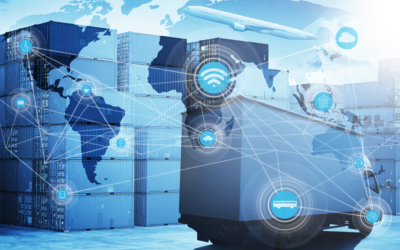With recent news of websites being shut down due to ongoing AWS issues, one industry that’s much less likely to be affected is global shipping. Such a complex network of ships, trucks, and cargo must be ripe for challenges when cloud computing is affected, right? The answer is no—primarily because the industry is still reliant on paperwork. While the digitalization of shipping is slow in coming, it could signal a huge shift in how packages are transported from point A to point B.
The Situation: Manual Processes Are Expensive
It’s hard to believe that, in the 21st century, there is an industry as large as the shipping industry that is still driven by manual processes. Yet, that is the case. In fact, only 9% of companies are currently embracing digitalization of shipping and supply chains.
Unfortunately, this hesitation to embrace technology is quite expensive.
You can pay almost twice the actual shipping cost on paperwork, according to Jim Hagemann Snabe, chairman of Maersk, one of the world’s largest shipping companies. That means, for every $1 spent on transporting goods, expect to pay up to another $1 on paperwork.
That’s a staggering figure, especially as shipping costs have skyrocketed 25–50% from last year. Of course, consumers are left to pick up the tab, with businesses bumping prices up to 80% (and sometimes as high as 96%) to offset their rising costs due to the pandemic, shipping container shortage, and supply chain issues.
Projection: Digitalization of Shipping Will Help Cut Costs
Maersk is one of the big players that is embracing digitalization of shipping. From booking and tracking shipments to maintaining real-time oversight of ships and trucks on their way, the entire industry is ready for an upgrade. COVID-19 has pushed the timeline to move away from manual, paperwork processes to more automated approaches.
The pandemic crippled numerous systems around the world, bringing to light the need for digitalization of shipping and supply chain. Since the industry is based on paper—which requires face-to-face meetings and signatures—shutdowns and distancing measures made a huge impact in 2020 and 2021. Through the use of digital solutions, all this can happen online.
Plus, once digitalization of shipping comes into play, freight forwarders will be able to be even more proactive in moving cargo from place to place. The shipping delays that are plaguing the western coast of the US can be avoided.
Recommendations
The shipping industry has seen the negative implications of using manual processes during the past two years. It’s time for a change. Freight forwarders and customers need to push digitalization of shipping to ensure we can cut costs and improve operations. The shipping industry needs this to happen sooner rather than later. The fact that an entire industry can be crippled during shutdowns and mandates because of a need for signatures on paper is pathetic as we head into 2022.
Your Partner in the Shipping Industry
Cyclone Shipping is a freight forwarder that is doing all we can to embrace the digitalization of shipping. Of course, since we schedule shipments and don’t run ships, we cannot change the entire industry, but we are definitely advocates for incorporating technology into our world to make it easier.
If you’re looking for a shipping partner who has your best interests in mind and stays at the front of what’s coming next in the industry, we’d love to talk. Contact us to learn more.




